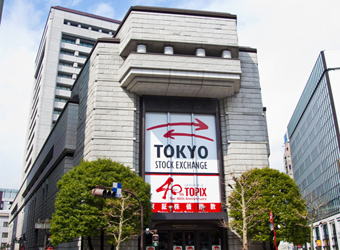Asia markets wavered on Monday, as investors looked past a weekend dominated with Donald Trump inauguration headlines and await clarity on policies including plans to possibly renegotiate the North American Free Trade Agreement and abandon the Trans-Pacific Partnership (TPP) deal.
The new administration said last Friday that its trade strategy to protect American jobs would begin with the withdrawal from the TPP and “crack down on those nations that violate trade agreements and harm American workers in the process.”
Trump’s first speech as president last Friday also revealed an “inward-looking and protectionist U.S., extolling ‘only America first’ policies on trade, taxes, immigration and on foreign affairs,” said Vishnu Varathan, senior economist at Mizuho Bank, in a note on Monday.
Australia’s ASX 200 fell 0.84 percent after initially trading higher, as its industrials subindex dropped 4.34 percent.
Logistics company Brambles plunged 16.7 percent, after the company downgraded its earnings guidance for the six months ended 31 December 2016, over concerns for its North American operations.
The company expects sales revenue growth at 5 percent, compared to the previous guidance of 7 to 9 percent, and underlying profit growth to be around 3 percent, compared to the earlier forecast of 9 to 11 percent.
Japan’s Nikkei 225 dropped 1.12 percent, likely weighed by the advancing yen as the dollar/yen pair slipped below the 114 handle.
Toshiba shares surged 8.11 percent, after several media reports that it is in the midst of preparing for the sale of its semiconductor business.
Other major exporters in Japan were hit by the stronger currency. Toyota Motor fell 1.34 percent, Honda Motor shed 1.86 percent, while Sony was off 1.07 percent and Panasonic was down 1.04 percent.
In South Korea, the Kospi was up 0.31 percent, as the political saga continues with President Park Geun-hye’s culture minister and her former presidential adviser arrested on Saturday over allegations that they blacklisted artists critical of the government, Reuters reported.
Samsung Electronics was up 0.7 percent as it finally identified what went wrong with its Galaxy Note 7 handsets. It led to one of the worst technology recalls in recent times, a day before its full-year earnings, with the assembly process in layering the batteries and issues in the manufacturing end responsible, the company said on Monday.
The South Korean electronics giant also filed a compensation suit against Sharp and Kuroda Electric in response to their decision to halt LC panel supplies to the company. Shares of the Japan-listed Sharp jumped 4.04 percent but Kuroda Electric fell 1.73 percent.
Mainland Chinese shares were positive: the Shanghai composite was up 0.34 percent, while the Shenzhen composite gained 0.813 percent. Hong Kong’s Hang Seng was near flat, earlier trading up as much as 0.8 percent.
In currency markets, the dollar index, which measures the greenback against a basket of currencies, traded lower at 100.3. Against the dollar, the yen was stronger at 113.756, while the Australian dollar was fetching $0.7573.
In energy news, the Organization of Petroleum Exporting Countries (OPEC) and non-OPEC countries energy ministers said they had a good, strong start to lowering their oil output, Reuters reported.
The ministers said about 1.5 million barrels per day have been taken out of the market.
Global benchmark Brent crude futures were up 0.23 percent at $55.62 per barrel, while U.S. crude futures were up 0.21 percent at $53.32.
Spot gold was up 0.6 percent at $1,217.04 an ounce, compared to last week’s levels in the range of $1,198.56 to $1,217.20.
Stateside, U.S. markets last closed higher in choppy trade with the Dow Jones industrial average was up 0.48 percent at 19,827.25, while the S&P 500 closed higher by 0.34 percent at 2,271.31, and the Nasdaq composite added 0.28 percent to close at 5,555.33.
Source: CNBC


